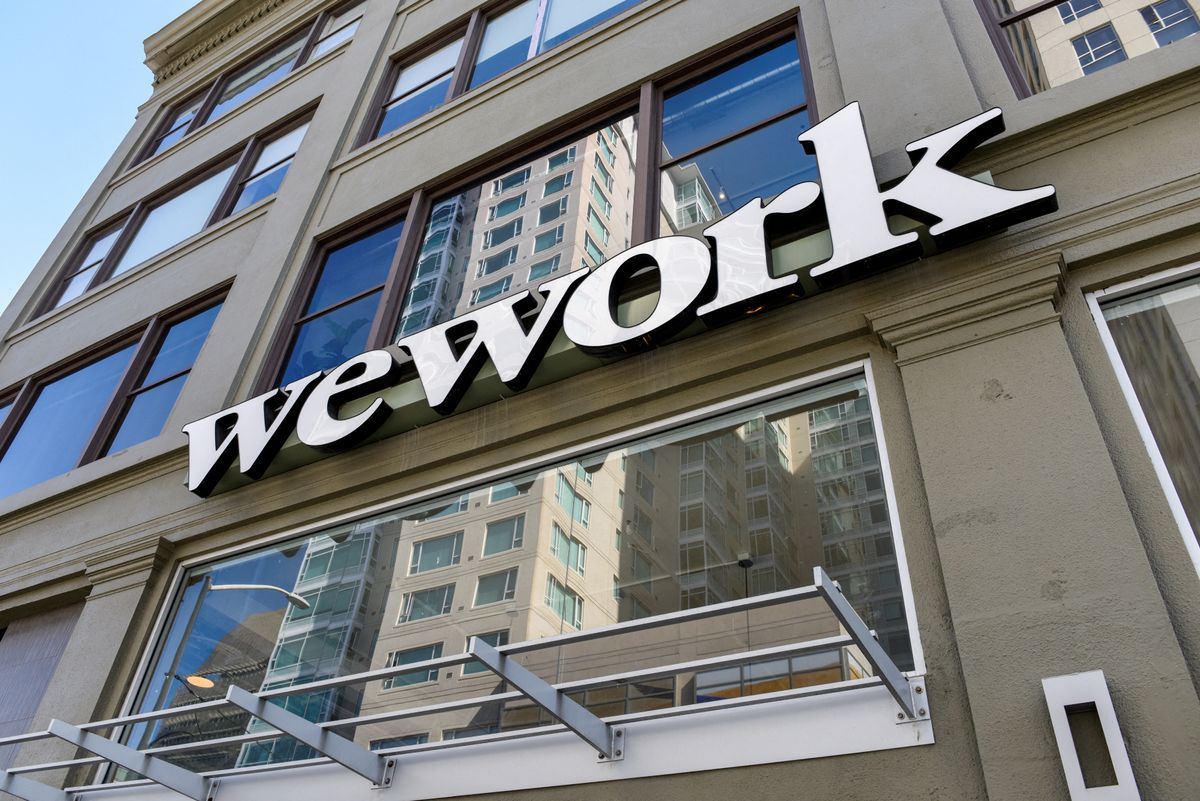WeWork files for bankruptcy – its rise and fall
WeWork launched the concept of a coworking space in 2010 in a way that hadn’t really been done before.

A few minutes every morning is all you need.
Stay up to date on the world's Headlines and Human Stories. It's fun, it's factual, it's fluff-free.
The backstory: WeWork launched the concept of a coworking space in 2010 in a way that hadn’t really been done before. It’s the brainchild of founder and former CEO Adam Neumann, whose reputation paints him as unpredictable and eccentric. He envisioned the company as more of a tech startup than it ended up being. Essentially, WeWork rented spaces in office buildings all over the world, retrofitting them into usable, modern office spaces to sublet to startups, freelancers and other companies. It had major backers, like a major investment from SoftBank’s Vision Fund.
WeWork’s plan involved pretty heavy early expansion, which included snagging rental space in some of the world’s most expensive markets. It also offered cool workspaces – perks like beer on tap, free coffee and snacks, stylish furniture, smart lighting, social areas and other amenities. WeWork was supposed to go public in 2019 at a peak value of US$47 billion, but that didn’t pan out. Larger-than-expected company losses and issues with Neumann’s leadership put the process on hold. Neumann was eventually booted from his CEO position.
More recently: Since Neumann was ousted, WeWork’s management tried to turn around those losses by cutting spending and boosting revenue. The COVID pandemic really rocked the boat for the company, though, which depended on the idea of people physically coming into their office jobs on a regular basis. Skyrocketing inflation hasn’t helped, either. It finally went public in October 2021, after its initial public offering (IPO) had already slid to US$9 billion.
Since then, there’s been regular board member turnover and restructuring efforts. This past August, WeWork released info suggesting that it’s not doing too great, and that it probably wouldn’t be able to continue operating as it had been. In October, it announced that it wouldn’t be able to repay its debts. It was once the world’s most valuable startup, but since its peak, it’s lost 99% of its value.
The development: On Monday, WeWork filed for Chapter 11 bankruptcy in a US federal court. In its filing, it listed about US$15 billion in assets, over US$18 billion in debt and more than US$100 million in unpaid rent for its spaces. It’s currently valued at about US$44 million. WeWork said that 92% of its lenders agreed to a restructuring plan that would let the company continue operating while reorganization is going on, but many of its sites are expected to close. The company and its stakeholders are looking into how to reduce debt while figuring out its location portfolio. This announcement isn’t supposed to affect WeWork outside of the US and Canada.
Key comments:
"As part of today's filing, WeWork is requesting the ability to reject the leases of certain locations, which are largely non-operational and all affected members have received advanced notice," said WeWork CEO David Tolley in a statement.
“Before WeWork, the perception was that SoftBank was an incredibly careful, clever, visionary organization under [Masayoshi] Son,” said Aswath Damodaran, a professor at New York University’s Stern School of Business. “But I think success sometimes goes to people’s heads. The fact that they were successful might’ve made them a little too convinced that they knew more than everybody else. And therein lies the seeds for the eventual fall.”
“Chapter 11 can provide many benefits to WeWork as it navigates a restructuring,” said Sarah Foss at Debtwire. “including the ability to reject financially burdensome leases and to use these rejection rights as leverage in negotiating more favorable lease terms.”




Comments ()